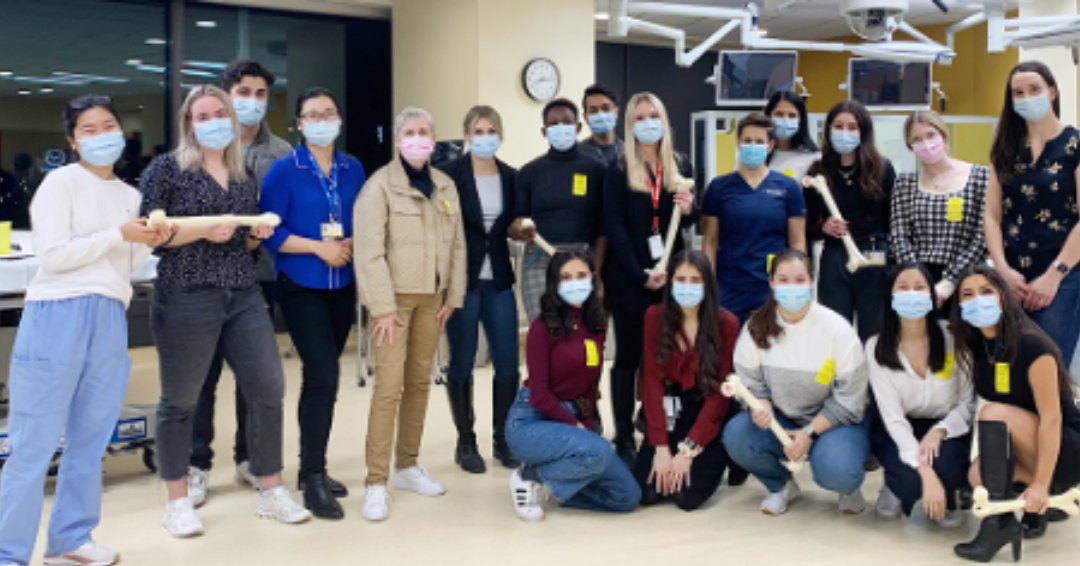
In the words of Elizabeth Blackwell, who in 1849 was the first reported woman to graduate from medical school and pursue a career in surgery in the U.S., “If society will not admit of woman’s free development, then society must be remodeled.” Today, surgery continues to be a male-dominated field, according to a study titled “The experiences of female surgeons around the world: a scoping review,” published in Human Resources for Health, in collaboration with the World Health Organization. Universally, women reported a lack of mentorship as a barrier to advancement.
Fortunately, professional support is available for aspiring and established female surgeons. Since its inception in 1981 the Association of Women Surgeons (AWS), headquartered in Lexington, Kentucky, has been aiding those underrepresented in surgery. With representation in 40 countries, its mission is “to inspire, encourage, and enable women surgeons to realize their professional and personal goals.” This mission is being bolstered by the McGill Students’ Chapter of the Association of Women Surgeons (McGill AWS), recipient of the AWS Best International Chapter title this year, largely for the success of its mentorship program, an initiative where established female surgeons help aspiring students navigate barriers to the profession.
Those impediments can vary in both nature and degree of severity, says chapter president, Rebecca Lozano-Franco, a medical student at McGill. “Sometimes at the individual level, when you’re a woman in surgery, you can feel underrepresented, or you could feel like you don’t connect with your colleagues or that they don’t understand you. Mentally speaking, it can be difficult to work in an environment that’s male-dominated. At the institutional level, there can be policies that perhaps don’t consider that women have different needs, visions and approaches.”
A specific example Rebecca points to involves maternity leave. “I spoke to a surgeon once who told me that when she came back from maternity leave her boss asked her how her vacation was. She didn’t know what to say. We’re trying to dismantle these ideas that make you think that you can’t be a mother and a surgeon, or you can’t be successful and have a work-life balance.”
Microaggression in the operating room is another sore point. “Women are often discouraged from going into orthopedic surgery just because they’re women, because they won’t be strong enough. ‘It’s too physical’, they are told. It’s all false, but it takes experienced and knowledgeable people to dismantle those ideas,” says Rebecca.
That’s where mentorship comes in. “We know that a lack of mentorship is a big deterrent from going into a surgical specialty, or any specialty in general. Not having a mentor that you can relate to and who has faced similar issues can discourage you from pursuing a surgical career or going into a specific field, because you don’t feel represented, and you don’t have anyone to answer questions related to being a woman in surgery,” says Rebecca.
The McGill AWS mentorship program connects students with successful female surgeons. Mentors register with the chapter indicating their time availability, and students state their surgical specialty preferences and the type of advice they need. Once the information is collected, a team works on matching the mentors and students. “We try to optimize the match as much as possible, for instance, if someone indicates they’re looking for advice on work-life balance, then we can match them to a mentor that said that this is a topic they feel comfortable talking about. Participants are then surveyed to assess how well the program is working and if adjustments must be made. Oftentimes, a mentorship will continue into residency,” says Rebecca.
The McGill AWS augments its mentorship program with yearly regional research conferences featuring keynote speakers and student presentations. “The Canadian Regional Research Conference in March was about surgical research. We sent out a call for abstracts to all Canadian universities and recruited judges from across Canada, usually residents in different surgical specialties, to judge the presentations,” Rebecca notes.
Keynote speakers at this year’s conference included Dr. Naana Jumah, an Obstetrician and Gynecologist at the Thunder Bay Regional Health Sciences Centre and researcher at the Northern Ontario School of Medicine, Dr. Shannon Fraser, Chief for General Surgery at the Jewish General Hospital in Montreal and Dr. Stephanie Thibaudeau, Assistant Professor of Surgery in the Division of Plastic Surgery at McGill University.
Rebecca is confident the McGill AWS is making inroads in the challenges faced by women in surgery. “By having all these events and all these opportunities, we’ll be able to inspire more people, whether it’s female medical students who are considering surgery or resident and staff surgeons who would like to help the next generation. We’re just hoping to engage with more people and to provide more opportunities for as many students as possible.”
Related:
Learn more about the McGill AWS and the Association of Women Surgeons
